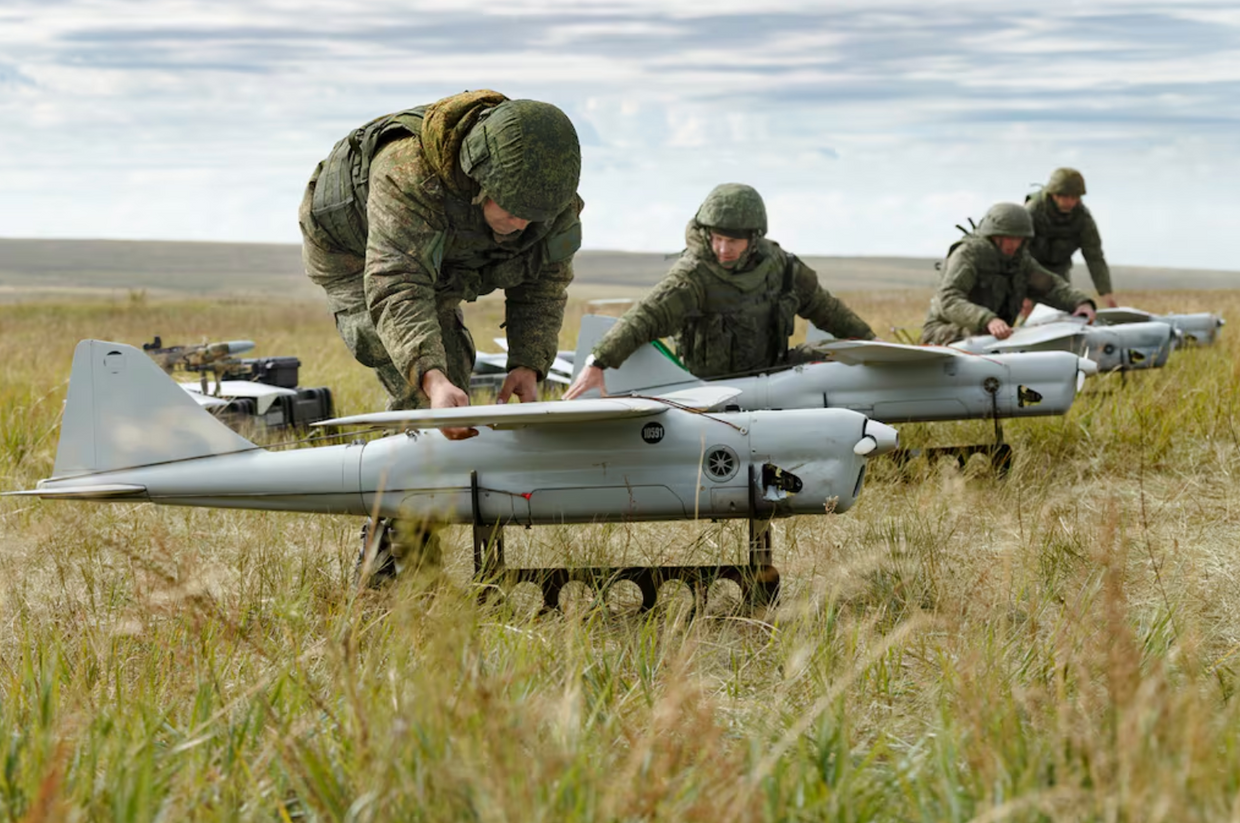German Chancellor Olaf Scholz (2ndR) gestures while he speaks to (L-R), U.S. president Joe Biden and French President Emmanuel Macron on October 18, 2024, in Berlin, Germany. (John Macdougall/POOL/AFP through Getty Images).
Instead of the planned visit, a short trip to Germany could be made. Instead of the conference at Ramstein, a four-way meeting was held in the Chancellery to coordinate future assistance for Ukraine. Over 50 countries participated in this meeting, including many heads of state and governments. The entire European political scene was thrown out of course when Hurricane Milton in Florida prevented U.S. president Joe Biden from following his planned itinerary.
The events of the past 14 days cannot be described in any other way. What happened in Germany, or more accurately what didn’t, exemplifies a desolate foreign and security policy for Europe at a critical time.
Why was the Ramstein Conference canceled? Was it because the American president was unable to attend? Were the Europeans unable to host a meeting without the American president or, if needed, with the Secretary of State or Defense of the United States present?
The recently concluded German-United Kingdom Defense Pact shows that action can be taken where there is will. But Europe needs much more than these bilateral agreements, however positive they may be.
Ukraine desperately needs more help. The third winter of war that Russian President Vladimir Putin started in February 2022 is fast approaching, and the situation in Ukraine is getting worse every week.
Since two and a quarter years, the German government and other European governments have been repeating the mantra that Ukraine will receive “all the assistance it needs” and for as long as needed. This claim is wrong no matter how often it is repeated.
The history of Ukrainian aid is one of constant dithering, hesitancy, stalling, and tactics. When nothing else works, the American president must break the political impasse.
But Biden spent most of this year on the campaign trail, before he withdrawn from the presidential race. He is now on a farewell trip. Donald Trump will be the new president elected on November 5. The Europeans will not be able to hide behind him if he is Donald Trump. The Ramstein conference, which was canceled, would have been a perfect opportunity for Europe finally to take the lead.
Scholz, the German Chancellor, should have explained what Scholz’s “Zeitenwende”, or “turning point”, which he declared after Russia’s invasion, means for Europe. He should have made clear statements with France and Great Britain to Putin. If you do not end your terror war against Ukraine’s civil population within 24 hour, they could say, the range limitations on the weapons supplied to Ukraine will soon be lifted.
It would have been nice to add that Germany would also supply Taurus cruise-missiles to Ukraine in order to help destroy the Russian army supply routes into Ukraine. France and Great Britain have already supplied cruise missiles that have the range to strike the Russian army’s supplies lines and appear to be prepared to continue down this road.
Scholz’s main motives are fear and the desperate hope that he can portray himself as “peace chancellor”, shortly before Germany’s Federal Election next year. Michel de Montaigne (16th century French philosopher) said that “fear is mother of all cruelty”. Emmanuel Macron, the French president, has undoubtedly read Montaigne’s warning and understood it.
Scholz, instead of acting decisively in Ramstein, had a nice cup of coffee with Biden shortly before the U.S. President was awarded the Order of Merit of the Federal Republic of Germany. The award ceremony united Great Britain and France, Germany and the U.S. only in nostalgia and not in defining decisive action and a sense of purpose that Europe needs today.
The ceremony was a reminder of how Germany behaved before the fall and reunification of the Berlin Wall, before the division in Europe was overcome, and before the war in Ukraine. The Cold War Europe sought comfort and confidence in its past, as well as the singular leadership of the United States that defined the period. The idea of Europeans making their own decisions was not even a thought back then. Did anyone invite the Polish Prime Minister Donald Tusk, for example, to the Berlin meeting?
Biden’s return to Washington after the failed Ramstein conference, and the truncated meeting in Berlin’s Chancellery, may have a symbolic meaning in the future. The last Atlanticist U.S. President for a very long time saying goodbye to Europe. The Europeans, who are without leadership and have no idea what lies ahead, wave goodbye to him while dreamily reminiscing on earlier times.
Editor’s note: The opinions expressed by the authors in the op/ed section do not reflect the views of Kyiv Independent.
Read More @ kyivindependent.com




